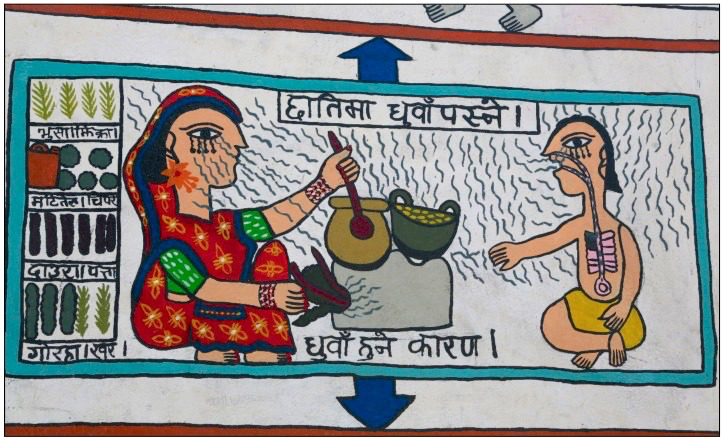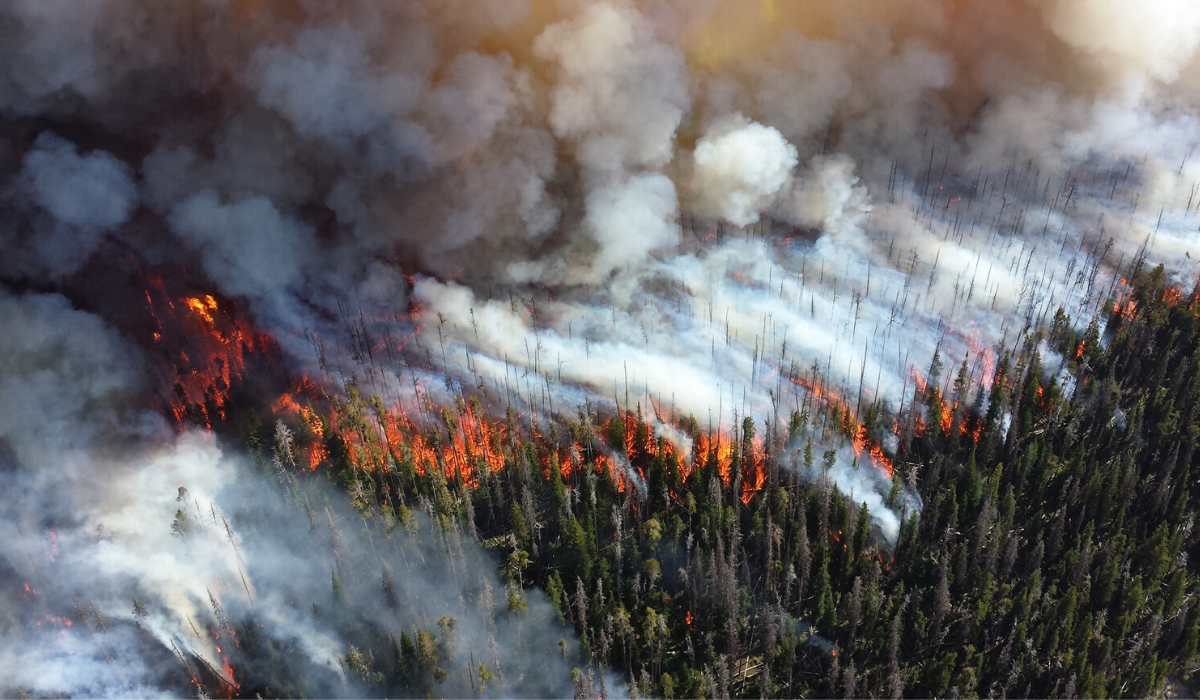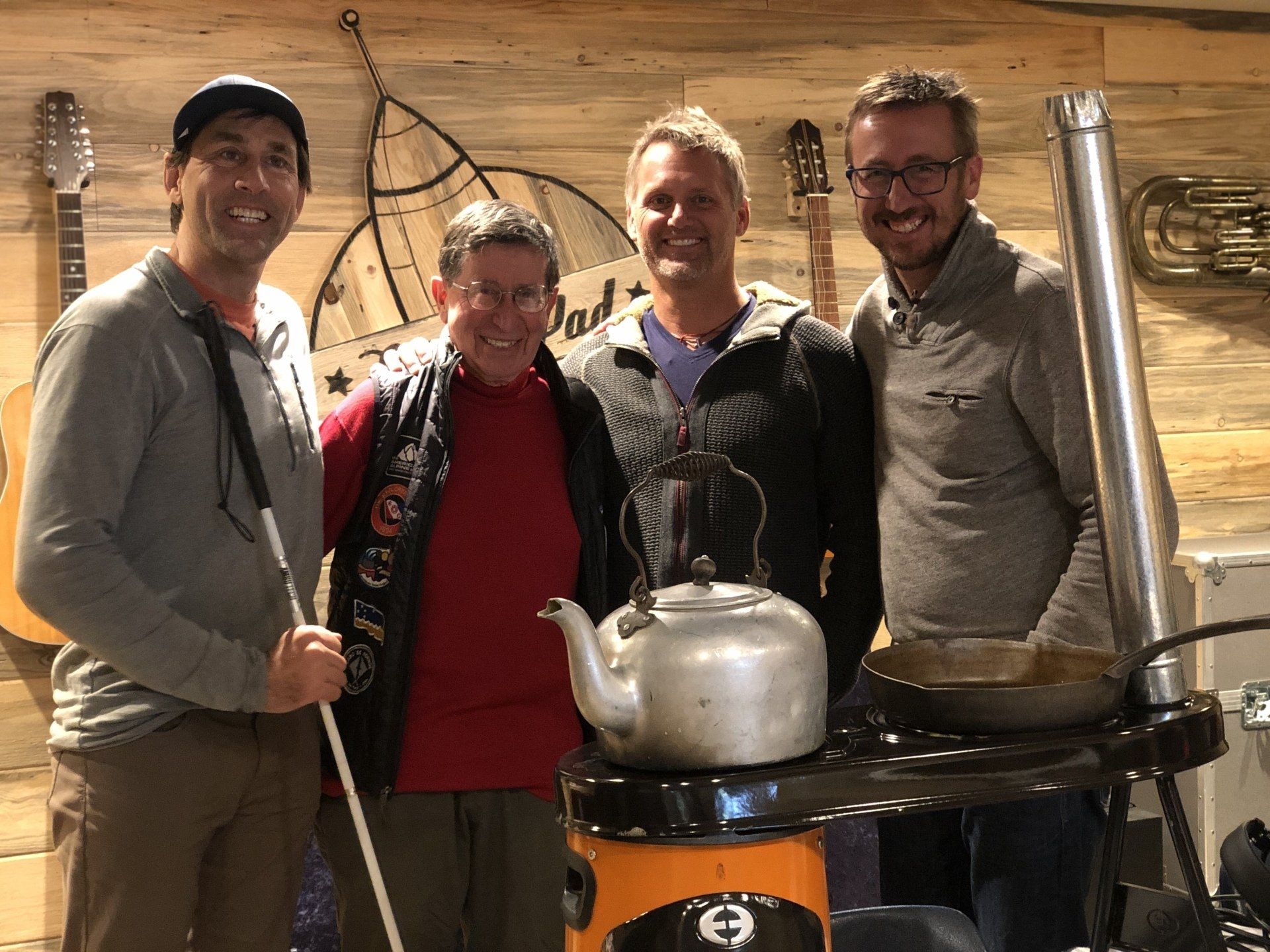Our News
Recent Posts


Jace Delivered 300 Stoves to Families in Nepal!
Previous Events
List of Services
-
Sir Chris Bonington to speak at Neptune MountaineeringThis event is sold out
Sir Chris Bonington, legendary mountaineer and HSP Advisory Board member, will be the featured guest speaker at Neptune Mountaineering in Boulder, CO on Thursday, June 6 at 7:15 PM.
Meet a mountaineering legend!
For more information or to RSVP for the Event, please go to Neptune's Facebook event.
**This event sold out.
-
Jeff Blumenfeld - Author + Explorer Supports HSP With Book LaunchItem Link
In 2010 PR pro Jeff Blumenfeld and George Basch met at the Explorers club. Nine years later, Jeff Blumenfeld has penned Travel with Purpose: A Field Guide for Volunteerism, that features the work of HSP.
For event details, more info on the book and how to purchase online visit https://travelwithpurposebook.com/
-
Taos Ski Valley Speaker Series with Dave HahnPurchase Tickets List Item 1
Mountaineering legend Dave Hahn is the featured speaker for the Taos Ski Valley Speaker Series, and will share stories and insights from his rich and diverse history working in extreme environments.
Dave is shown above, holding the Himalayan Stove Project flag at the summit of Mt. Everest in 2014, his 14th summit (he's actually completed 15 successful summits, more than any non Sherpa), and continues to guide groups in Antarctica, Africa, and Alaska.
*This Event has SOLD OUT
-
Jace delivered 300 StovesItem Link

"I trekked in Nepal nearly 10 years ago and the place really affected me as it seems to affect of lot of others. Your initiative seems like a direct way to make a real practical difference. Thanks for standing up and doing something that allows us all to help."
Brett Leeder
"Yours is a wonderful endeavor, and I would like to help you in any way that I can."
Will Roseman
"Just wanted to say how much I admire your work with the clean stove... And all the best for your continued good work."
Mark Pendergrast
Julia Roberts & The Global Alliance
Cooking shouldn't kill

“The Himalayan Stove Project addresses two challenges of life in the rugged Himalaya : indoor air quality and deforestation. The innovative stove drastically reduces the level of indoor pollutants and does so with less fuel. Less fuel equates to less burden on the surrounding forest. By building local communities into the project, the Himalayan Stove Project has a real and measurable impact on the lives of people in the Himalaya.”
Write your caption hereConrad Anker
"We all want to change the world… most of us are kind enough, but not quite creative enough to figure out how to make a difference for people living in challenging circumstances. The Himalayan Stove Project is a tangible, smart, common sense approach. Well worth getting behind."
Dave Hahn
"I trekked in Nepal nearly 10 years ago and the place really affected me as it seems to affect of lot of others. Your initiative seems like a direct way to make a real practical difference. Thanks for standing up and doing something that allows us all to help."
Brett Leeder
"Yours is a wonderful endeavor, and I would like to help you in any way that I can. I’m so glad you enjoyed ECAD (Explorers Club Annual Dinner). We thoroughly enjoyed you being there and also being a part of our program."
Will Roseman
"Thank you for all the good work that you are doing in Mustang with the stoves. I would say that is Dharma in action!"
Tsering Dolkar
"You have the support of Dr. Bruce Johnson, MD and his Human Physiology Laboratory of the Mayo Clinic, and we are in the process of building a collaboration on a small project related to respiratory health. "
Bruce Johnson, MD
"So glad to hear about the great progress your Himalayan Stove Project has made. Having been on 7 expeditions to the Himalaya, I can attest to the pressing need for a clean, renewable cooking process. The positive impact on the environment and quality of life cannot be overestimated. "
Sherman Bull, MD
“Well aware and thoroughly inspired by your progressive and outstanding work with HSP, George “Chief Cook” Basch. I just hope future generations of adventurers take a leaf out of your book as an exemplary way to invest their efforts and talents in the future.”
Jason Lewis
"Great stuff, George. Keep it up!"
Captain Joel S. Fogel Board of Directors / Nominated at The Explorer’s Club
“May God bless you for your work in the field of improved cook stove for the rural people to save them from carbon in their health.“
Narayan Bhakta Pradhan
“The Himalayan Stove Project is one of the most appreciated projects in Nepal. What sets this project aside is that there are no direct financial implications, no opportunities for miss-use of funds... One such community made donations for the stoves to a micro finance project, managed by the Mothers’ Group and now nearly all the community are not only contributing, but, receiving expanded benefits."
Write your caption hereIan Wall, Off The Wall Trekking
“Love your stove project, fantastic initiative.”
Steven Ballantyne, FRGS (Fellow, Royal Geographical Society)
“Looks like you are doing some great work. I love the Himalaya and appreciate the work you are doing there.”
Jonathan Irish Program Director, National Geographic Adventures
“I have heard of your project! Fanstastic work indeed.”
Greg Brown
“Just wanted to say how much I admire your work with the clean stove. Good to be in touch. And all the best for your continued good work.”
Mark Pendergrast
“I’m really excited by the autumn plan when you visit the Gorkha region and the Blustains. I wish I could accompany you- it will be very rewarding for you!”
Carlos Buhler – American Mountaineer – Summitted Mt. Everest on the first successful ascent of the Kangshung Face in 1983
HSP In the News
List of Services
-
Front Page at MITItem Link
Earlier this month our Founder and "Chief Cook", George Basch was featured on the front page of his alma mater, Massachusetts Institute of Technology's (MIT), newspaper in a great article. Read more about George's awesome life journey and lessons. Photo of George by Felix Kunze. Check out the story here.
-
Teen’s Hobby Makes Global ImpactItem Link
The amazing young woman, entreprepreneur, jewelry designer and high school junior who began donating all proceeds of her jewelry to Himalayan Stove Project... See the full article here.
-
Podcast with George Basch and Erik Weihenmayer!Item Link
Through Erik’s groundbreaking adventures around the world, he has explored and defined what it means to live a No Barriers Life, describing it as a map we build to navigate and to pursue a life that matters. Central to this journey is a mindset to continually challenge ourselves to grow and evolve – in Erik’s words, to “climb” while others “camp. Listen to the full episode here.
-
Outside Magazine just mentioned HSP in their article!Purchase Tickets List Item 1
Yes, to responsible travel, hiking and general enjoyment and sharing of our planet! Thanks for the shout-out Outside Magazine! See the full article here.
Videos
List of Services
-
Our Story Write a description for this list item and include information that will interest site visitors. For example, you may want to describe a team member's experience, what makes a product special, or a unique service that you offer.
Item Link List Item 1 -
Breathe Easy Nepal Gamcha Write a description for this list item and include information that will interest site visitors. For example, you may want to describe a team member's experience, what makes a product special, or a unique service that you offer.
Item Link List Item 2 -
A Brief Introduction Write a description for this list item and include information that will interest site visitors. For example, you may want to describe a team member's experience, what makes a product special, or a unique service that you offer.
Item Link List Item 3 -
Institutional Model Stove Write a description for this list item and include information that will interest site visitors. For example, you may want to describe a team member's experience, what makes a product special, or a unique service that you offer.
Item Link List Item 4 -
Project Update Oct 2012 Write a description for this list item and include information that will interest site visitors. For example, you may want to describe a team member's experience, what makes a product special, or a unique service that you offer.
Item Link -
Just One Moment Write a description for this list item and include information that will interest site visitors. For example, you may want to describe a team member's experience, what makes a product special, or a unique service that you offer.
Item Link
Useful Links
Contact info
info@himalayanstoveproject.orgPO Box 3648
Taos, NM 87571
Be in the know - sign up for our newsletter
Contact Us
Thank you for contacting Himalayan Stove Project. You have been successfully subscribed to our newsletter!
Please try again later


















